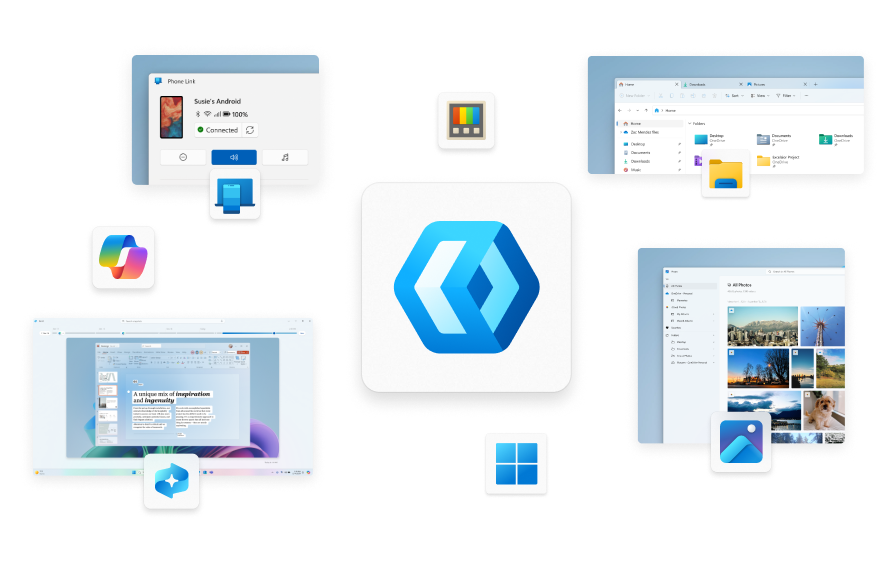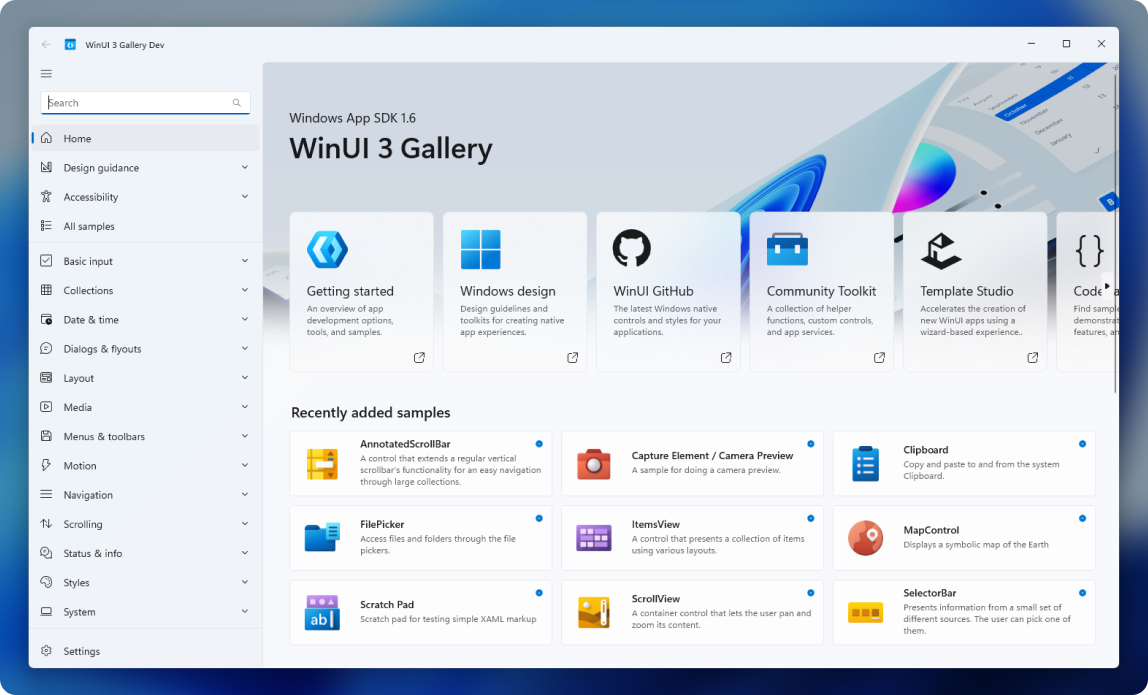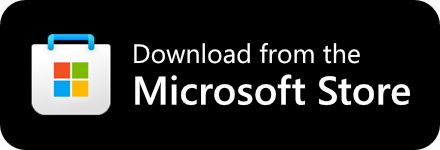Microsoft.UI.Xaml Microsoft Corporation
winget install --id=Microsoft.UI.Xaml.2.8 -e Windows UI Library: the latest Windows 10 native controls and Fluent styles for your applications
Microsoft.UI.Xaml is a comprehensive UI framework designed to provide modern controls and Fluent styles for building dynamic and high-performing Windows applications. It offers developers a rich set of tools and features to create intuitive, accessible, and visually appealing user experiences.
Key Features:
- Fluent Design Implementation: Leverages the latest Fluent design principles to deliver sleek, modern interfaces that align with current UI trends.
- Cross-Language Support: Enables development using .NET with C# or C++, providing flexibility for diverse coding preferences.
- Performance Optimization: Designed to create applications optimized for modern hardware, ensuring smooth performance across x86, x64, and ARM architectures.
- Integration with Windows App SDK: Part of the broader Windows App SDK ecosystem, allowing developers to access a wide range of platform functionalities.
Audience & Benefit:
Ideal for developers building Windows applications targeting Windows 10 17763 or newer. It empowers them to create high-quality, visually appealing apps that align with modern design standards and deliver exceptional user experiences.
Microsoft.UI.Xaml can be installed via winget, ensuring seamless integration into your development workflow.
README

WinUI 3
About WinUI · Documentation · Release notes
WinUI is a user interface layer that contains modern controls and styles for building Windows apps. The current generation is WinUI 3, which ships as part of the Windows App SDK.
- Modern UI: WinUI embodies Fluent Design to enable intuitive, accessible, and powerful experiences and the latest user interface patterns.
- Developers in control: Use .NET with C# or C++ to write apps that run great on x86, x64 and ARM.
- Optimized for modern experiences & hardware: Create performant experiences with WinUI that are optimized for modern hardware.
- Part of the Windows App SDK: The Windows App SDK is a set of libraries, frameworks, components, and tools that you can use in your apps to access powerful Windows platform functionality from all kinds of apps on many versions of Windows. The Windows App SDK combines the powers of Win32 native applications alongside modern API usage techniques, so your apps light up everywhere your users are.
- Powers key experiences in Windows: Windows experiences and apps are built with WinUI. Its rich control set and styles make it easy to develop high-quality experiences used by millions every day.

📋 Getting started with WinUI
For WinUI, your app's users must be on Windows 10 1809 - Build 17763 or newer (including Windows Insider Previews).
The full documentation of WinUI can be found on Microsoft Learn:
🖼️ WinUI 3 Gallery
Make sure to also check out the , our interactive sample experience showing everything you can do with WinUI.


